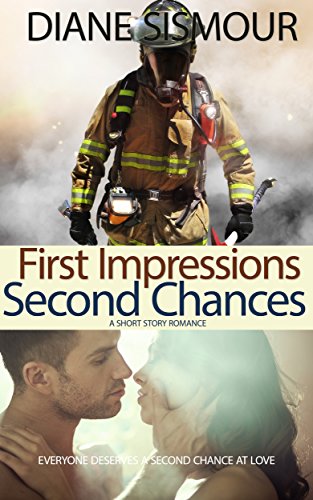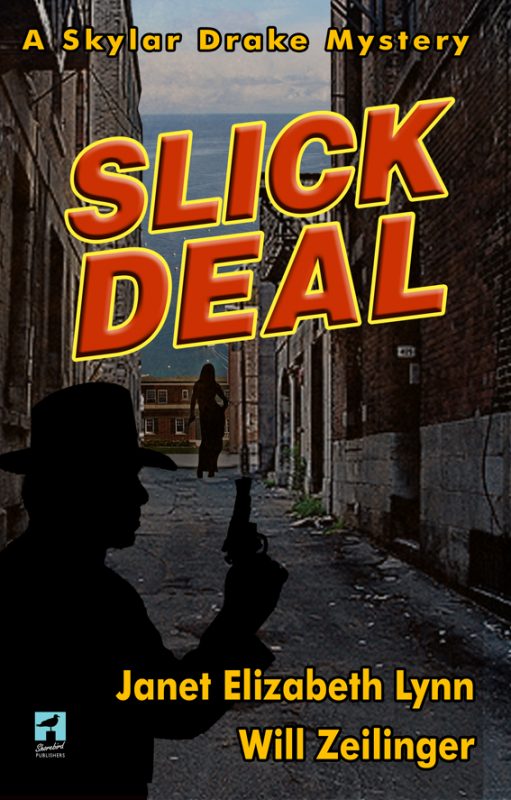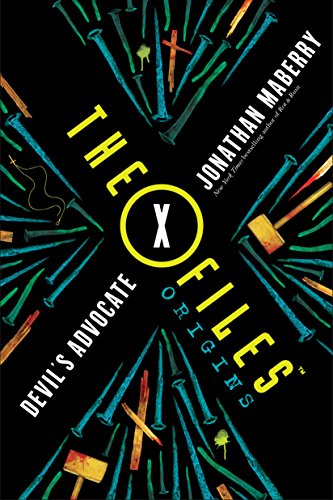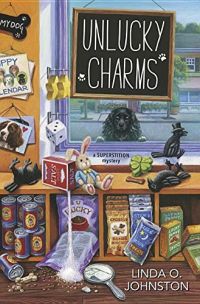Masked Eyes Still Tell Tales
April 20, 2020 by Meriam Wilhelm in category A Bit of Magic by Meriam Wilhelm tagged as body language, characters, eyes, Masks
I’ve heard it said that eyes are the window to the soul, but I’ve always been more of a total face person. I like to see smiles, dimples, scrunched up noses or puffed out cheeks. By getting a look at the total face, I think that it’s a whole heck of lot easier to predict what is going on in a person’s head and how to respond. When I’m creating a character, I never stop at just describing the eyes. I mean… do you?
So, what do you do when the only thing that isn’t covered by a mask is a pair of eyes? Unfortunately, during this pandemic, wearing a mask has become as common as wearing a t-shirt and getting to really “see” the person you are trying to communicate with can be uber challenging.
Lucky for me, I also take a lot of my cues from raised eye brows, crinkled crows feet, squinty eyes and furrowed brows. I’m far more comfortable with smiling eyes, bright eyes and even sleepy eyes than I am with angry or worried eyes. And it can really throw me off when those eyes are covered by thick or fringy bangs, glasses or the bill of a cap pulled taunt over a forehead. But if you practice real hard and pay close attention, I theorize that a pair of eyes, peeking out from behind a mask, can actually give you some clues to maneuver by. It’s sort of like learning a foreign language and I got a crash course while dropping by Costco the other day. Flashing, angry eyes mean – for your own good – get as far away as possible, as soon as possible. Sad eyes need a nod of support and happy eyes, well just enjoy those – they may be few and far between these tough days. One other clue to how a stranger might be feeling could be found in the mask they are wearing. I’ve included pictures of a few that I’ve made. How can you not feel happy when wearing something so whimsical?
So until the day comes when we can all greet each other with an upturned smile or a downturned frown, a hug, a giggle or a hoot—take care, be safe and stay home—then you won’t need to wear a mask!
Figuring Out What Our Characters Want
October 12, 2019 by Denise M. Colby in category The Writing Journey by Denise Colby tagged as characters, Denise M Colby, writing craft
When writing a story, writers need to ask the question “What do we think our characters want?”
On the surface that may sound like an easy question, but when I was a new writer, I found it very challenging. Probably because I had a hard time knowing what I wanted for myself.
Never one to make decisions quickly, choosing what to wear or what I wanted to eat for dinner was not always simple. Deciding on what restaurant to go to or what movie to watch was a loaded question in our house, since my husband and I usually came from opposite ends and had to find a compromise. For some reason, as a younger me, I would discount my own desires or not really care. I even had a ex-boyfriend ask me what I wanted once, and even though I had basic goals and dreams, things I liked to do and be a part of, I was unsure how to answer specifically.
Maybe I was too afraid to be so definitive. Or I wanted to make sure I would be really happy with my decision. Or I liked to blend in with whomever I was hanging out with. Who knows. All that’s to say, asking “What does our Hero want? What does our Heroine want?” over and over made me realize I had to dig deeper in defining myself as well as my characters if I wanted to write a story.
So how do we get inside our characters head and ask what they want?

I worked on five different techniques to help me dive deep:
1. Pay attention to the world around you. Not just in general, but to each individual.
I started paying deeper attention to the different nuances in my friends and family. Never wanting to judge, I purposely didn’t focus on differences or quirks, but as a writer, that’s what makes our characters unique and special. And it’s those quirks that we love in our friends and family, isn’t it?
2. People watch.
Take a look and watch people’s faces for reactions and try and guess what they are thinking. My husband and I love to do our date nights at Disneyland. It’s a great place to people watch. There are so many different personalities to watch and observe and try and figure out a background story for them.
3. Pay attention to what vehicle someone drives.
I don’t know why, but I love trucks. And when I see a vehicle I like I tend to look at who is driving it and what their story is. I probably could make up a lot of stories this way, but right now I’m focusing on time periods without vehicles, so I’m packing away these observances for a later time. But the exercise has helped me practice defining characters. If it’s not a vehicle, you could pick some other item such as a house, a pet, or clothes. What type of person would choose…
4. Make a decision and stick with it.
I don’t know why, but this has been difficult for me. I ask too many ‘what ifs’. Just pick one and write from that perspective. If you need to change it later, that’s okay. Decisiveness helps you move forward. Originally, I couldn’t decide on any particular personality and so my heroine was everything. There was no uniqueness that I could specifically use to forward her story. I had to go back and be more clear-cut and unambiguous. Which leads me to my last point.
5. Be more specific with the smaller details.
In the beginning I was really vague with what I thought my characters wanted. It made it harder to write a scene. When I started my second book’s draft, I had defined my characters more before I wrote and had a stronger idea who they were and what they wanted. I found it was so much easier to write from their point of view that way. All those decisions made a difference!

So as you work on your first book or your twentieth, I hope this gives you some fresh perspective in helping you flush out your characters. I had jotted notes down about this blog topic early on in my writing journey. It was one of those aha moments that really helped me break through a hurdle I had in flushing out my story.
Since then I’ve learned more about myself, too.
Thanks for reading,
Denise
Do Your Characters Think About Their Birthday?
September 12, 2019 by Denise M. Colby in category The Writing Journey by Denise Colby, Writing tagged as birthdays, characters, writing
So do your characters think about their birthdays at all?
Given that this month is my birthday month and it’s a big one for me, I thought I would go with a birthday theme for my post. I actually woke up on my birthday with a million thoughts racing through my head and one of them was my to do list and the need to find a topic for this post. And then the next thought that came into my mind, was what do the characters we write about feel about their birthday each year?
Then I wondered, if writers thought about their characters birthdays at all and if they addressed anything related to birthdays in their stories.
I’ll admit, it certainly hadn’t been something I’ve thought much about.
Questions such as:
- What do they think of as their birthday approaches?
- Do they have memories of certain years and milestones?
- How often does someone write a scene that includes a birthday?
- And would it be different if we were writing historical or contemporary?

I read a lot of books and I cannot recall any of recent talking about birthdays or their age that much. Not that that topic alone would be a fasinating read.
But as I had my fiftieth birthday dangled in front of me most of this year, the way it affected me was an interesting struggle. One I wasn’t expecting or knew how to deal with. I would think those parts might be interesting to incorporate some how in our character’s backstory.
I find it an interesting perspective to include your characters thoughts about birthdays and ages. Maybe no one ever celebrated their special day before. And all of a sudden they are thrown into a family that does. Or every year was made out to be “the one” special event of the year and now they’ve lost loved ones and it isn’t the same.
Also, milestones and how we celebrate them have changed. We grow older than people did a century ago, so there are more birthdays to celebrate. Or large families with ten children did not have a lot of extra funds, so gifts were not as plentiful as they are today. And today families live further away from each other than they did a century ago.
So it would seem the year our book is set would impact how our characters may look at birthdays.

Do you think the emotions over turning, say, 50, has changed much? What about 18? Or 21? Young adults married at a very young age a century ago, but now most young people wait till they are done with college. So, the focus on what the number means has changed over the years.
For me, this year has been full of trepidation, reflection, and assessment. Having health issues there have been several times I’ve wondered if I’d passed into a new normal. Low energy, unable to eat certain foods, has made me wonder if I was aging out of my prime. It’s quite comical, actually. What if this was the beginning of the end? I know . . . dramatic, but hey! I have felt it a bit this year.
So as my birthday approached, and I was trying to answer my husband’s question of what I wanted to do for my birthday, a part of me didn’t want to even address it. A few friends had felt that way as well, and I laughed it off, but when it hit me that way too, well, that was an interesting perspective. I told myself it wasn’t a big deal. I didn’t want to burden anyone or put anyone out. But why? Why did I feel this?
And my husband, being the gem he is, read between the lines and very patiently walked through question after question, just to make sure he understood. Which was something I really needed. Bless him, he didn’t want to get it wrong!
Birthdays come and go but I don’t think the emotions behind them have changed much.
Some people dread them, some want to celebrate them big, while others try to find something in the middle. Maybe we can take some of the birthday experiences around us and put them in our stories. Maybe not a specific scene, but knowing your characters perspective about their special day in the background may not be a bad way to incorporate why they are the way they are.

P.S. I googled “celebrating birthdays in a romance novel” after I wrote this post and did you know there are actually several stories that are centered around birthdays? I might just have to find a few and read them.
Murder on the Rio Grande by Jenny Jensen
August 19, 2019 by Jenny Jensen in category On writing . . . by Jenny Jensen tagged as characters, crime novels, plotting murder, Series Characters
I’m a fan of whodunnits and crime procedurals with a special lust for a good series. It’s critical the mystery of the murder be compelling in some way—no anonymous muggings—and clues woven in with the chance to solve it, but I love that surprised frisson I get from a solution I hadn’t seen coming. It’s the characters though, that keep me coming back for more (or waiting for the next book which takes patience as a writer should be allowed some time).
It’s been said that good series characters become dear old friends; these are people you’d like to spend time with. I agree, sort of. I love Beckham’s Skelgill—what an odd and intriguing man—but I’m not sure I’d want him over for the holidays. I wouldn’t know what to say to Miss Marple. I would however, be thrilled to spend a weekend at the beach with Forster’s Finn O’Brien and Cori Anderson—they’d be a blast. Regardless, I love all my favorites simply because they are beautifully drawn characters who’s worlds are well worth sharing.
I’ve worked with several clients as they develop a series character and build a complex crime plot. It’s the NYT crossword of plot building. It’s hard work, which (as usual) means rewrite and after rewrite. It’s easy to play at though. That’s what I do when I’m waiting for the doctor or dentist—plot the murder of a fellow patient by another, build up motive and means and then the nurse calls my name. It passes the time more artfully than an ancient issue of People though I’ve been caught staring—awkward, so I’m good at a passive shrug and an innocent smile. But this morning—at 5 am to be precise—we had a real murder in the house.
A baffling, ferocious racket wakes us. My eyes fly open to meet Tom’s, one look enough to know we both know whatever it is, is in the house. Tom shoots up. I follow more cautiously into the living room to see my solid, sturdy couch rocking and pulsing like a thing possessed. A scruffy bit of fur whips frantically from beneath only to be pulled back in. A thumping commences and then a deathly silence, finally broken by the sickening crunch of breaking bone.
Hesitantly we upend the couch and Max, our maniacal Siamese, turns up triumphant blue eye and finishes the last bit of gopher, bones fur and all. In my house. In the structure of my couch. Is this murder? If you’re a gopher, yes. If you’re me, no. We have a horrible gopher problem and it’s Max’s job to sort it. But in the house? Sheesh. I contemplate killing Max.
So it’s not technically a murder. It isn’t even as good as an anonymous mugging. There is a series character though, only he’s the (serial) perp, not the detective and I like him so much he lives in my house. But there is a mystery: who didn’t lock Max’s cat door after sundown? Tom thinks it’s me but you and I dear reader, know otherwise.
~Jenny
6 0 Read moreOn Writing…The Parts of the Whole
May 19, 2019 by Jenny Jensen in category On writing . . . by Jenny Jensen tagged as characters, Secondary Characters, writingJenny Jensen is out having an adventure.
While she was out, we thought you would like to revisit one of her posts from our archives. Jenny will be back in June with a new post On Writing . . .
CHARACTERS – the Stars and the Extras

A good story is made up from a host of elements that when jumbled together and skillfully molded become a glorious whole – just like Dixie Jewett’s fabulous horse. Plot, setting, theme, writing style and characters all must blend to make the whole pleasing. Being an omnivorous reader (yes, even when I’m not editing) I am happy with a plot driven or an action driven story, but I am smitten by a character driven tale. Reading a character driven novel is like crashing a party and making the acquaintance of new and fascinating people.
Main Characters
The main characters always have some attraction otherwise they wouldn’t support the story and make the reader care. Who couldn’t be enthralled by bossy Elizabeth Bennet and the steely D’Arcy, or Scarlett and Rhett? And then there’s Hannibal Lector, the very pinnacle of evil yet more compelling than a ten-ton magnet. Depending on how the story is structured we can learn their history upfront, or it is revealed through out the narrative, but there is always enough time and story space to make that all-important emotional connection through, not just history, but mannerisms, speech patterns, and motivations.
Secondary Characters
It is the secondary characters – the extras, if you will – that are often the most colorful component of great novels. Dickens’ genteelly mad Miss Haversham, du Mauier’s chilling Mrs. Danvers. Creating a supporting cast that adds a glint of darkness, a spark of humor or a touch of humanity to a story. Beyond helping to create a personality in a novel, this supporting cast is also critical to fleshing out the setting – you know you’re in NYC when your hero is depressed and seeks the ever freely given advice of street smart Dominick De Luca at his World Famous Hotdog cart. You feel you’re in San Francisco when the hero hears the Powell Street cable car and hops on to her morning repartee with Phillip the droll veteran conductor.
Secondary characters can be tools to move the action forward. If your protagonist needs to be placed in a situation that is out of character for her, use a secondary character to get her there. For instance, the contrary but kind old Mr. Kronke is Mia’s downstairs neighbor to whom she can never say no. Too ill to act on his passion for the horses Mia agrees to deliver his bet to the shady off license where she stumbles into a handsome man and so meets the hero.
Supporting Characters
Finally, supporting characters make great sounding boards to help the main characters work out internal conflict. Think about the key role lively dialog with the saucy office receptionist might play, or a hip bartender. Dithering Aunt Renada, for instance, is far more compelling than your main character’s long internal dialogue.
Just remember that you, the author, are creating a whole world and you must populate it. Your cast of characters can be useful, colorful, thoughtful, wicked, wise or witty but they should never be boring. Look at the world around you, note all the people you come in contact with, and you will have all the inspiration you need to create fantastic and memorable characters.
Jenny
0 0 Read more
Affiliate Links
A Slice of Orange is an affiliate with some of the booksellers listed on this website, including Barnes & Nobel, Books A Million, iBooks, Kobo, and Smashwords. This means A Slice of Orange may earn a small advertising fee from sales made through the links used on this website. There are reminders of these affiliate links on the pages for individual books.
Search A Slice of Orange
Find a Column
Archives
Featured Books
FIRST IMPRESSIONS SECOND CHANGES
Everyone deserves a second change at love.
More info →SLICK DEAL
On the eve of the New Year, 1956, oil tycoon, Oliver Wright dies suspiciously at a swanky Hollywood New Years Eve party. Some think it was suicide.
More info →Newsletter
Contributing Authors
Search A Slice of Orange
Find a Column
Archives
Authors in the Bookstore
- A. E. Decker
- A. J. Scudiere
- A.J. Sidransky
- A.M. Roark
- Abby Collette
- Alanna Lucus
- Albert Marrin
- Alice Duncan
- Alina K. Field
- Alison Green Myers
- Andi Lawrencovna
- Andrew C Raiford
- Angela Pryce
- Aviva Vaughn
- Barbara Ankrum
- Bethlehem Writers Group, LLC
- Carol L. Wright
- Celeste Barclay
- Christina Alexandra
- Christopher D. Ochs
- Claire Davon
- Claire Naden
- Courtnee Turner Hoyle
- Courtney Annicchiarico
- D. Lieber
- Daniel V. Meier Jr.
- Debra Dixon
- Debra H. Goldstein
- Debra Holland
- Dee Ann Palmer
- Denise M. Colby
- Diane Benefiel
- Diane Sismour
- Dianna Sinovic
- DT Krippene
- E.B. Dawson
- Emilie Dallaire
- Emily Brightwell
- Emily PW Murphy
- Fae Rowen
- Faith L. Justice
- Frances Amati
- Geralyn Corcillo
- Glynnis Campbell
- Greg Jolley
- H. O. Charles
- Jaclyn Roché
- Jacqueline Diamond
- Janet Lynn and Will Zeilinger
- Jaya Mehta
- Jeannine Atkins
- Jeff Baird
- Jenna Barwin
- Jenne Kern
- Jennifer D. Bokal
- Jennifer Lyon
- Jerome W. McFadden
- Jill Piscitello
- Jina Bacarr
- Jo A. Hiestand
- Jodi Bogert
- Jolina Petersheim
- Jonathan Maberry
- Joy Allyson
- Judy Duarte
- Justin Murphy
- Justine Davis
- Kat Martin
- Kidd Wadsworth
- Kitty Bucholtz
- Kristy Tate
- Larry Deibert
- Larry Hamilton
- Laura Drake
- Laurie Stevens
- Leslie Knowles
- Li-Ying Lundquist
- Linda Carroll-Bradd
- Linda Lappin
- Linda McLaughlin
- Linda O. Johnston
- Lisa Preston
- Lolo Paige
- Loran Holt
- Lynette M. Burrows
- Lyssa Kay Adams
- Madeline Ash
- Margarita Engle
- Marguerite Quantaine
- Marianne H. Donley
- Mary Castillo
- Maureen Klovers
- Megan Haskell
- Melanie Waterbury
- Melisa Rivero
- Melissa Chambers
- Melodie Winawer
- Meriam Wilhelm
- Mikel J. Wilson
- Mindy Neff
- Monica McCabe
- Nancy Brashear
- Neetu Malik
- Nikki Prince
- Once Upon Anthologies
- Paula Gail Benson
- Penny Reid
- Peter J Barbour
- Priscilla Oliveras
- R. H. Kohno
- Rachel Hailey
- Ralph Hieb
- Ramcy Diek
- Ransom Stephens
- Rebecca Forster
- Renae Wrich
- Roxy Matthews
- Ryder Hunte Clancy
- Sally Paradysz
- Sheila Colón-Bagley
- Simone de Muñoz
- Sophie Barnes
- Susan Kaye Quinn
- Susan Lynn Meyer
- Susan Squires
- T. D. Fox
- Tara C. Allred
- Tara Lain
- Tari Lynn Jewett
- Terri Osburn
- Tracy Reed
- Vera Jane Cook
- Vicki Crum
- Writing Something Romantic
Affiliate Links
A Slice of Orange is an affiliate with some of the booksellers listed on this website, including Barnes & Nobel, Books A Million, iBooks, Kobo, and Smashwords. This means A Slice of Orange may earn a small advertising fee from sales made through the links used on this website. There are reminders of these affiliate links on the pages for individual books.







































